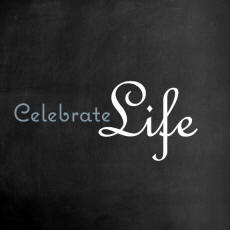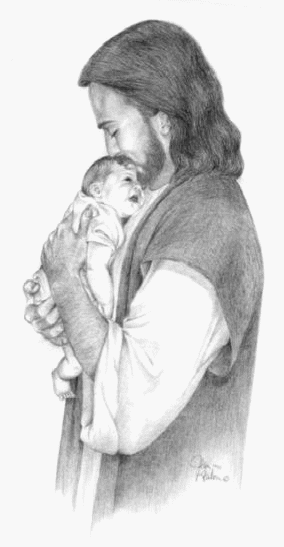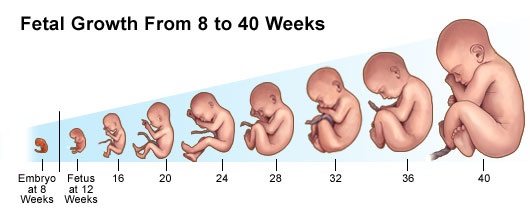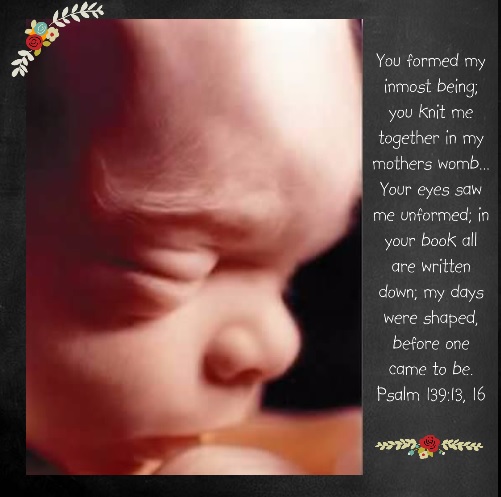It is the mission of St. Luke's Pro-Life Ministry to nurture, within our parish community, an awareness of the dignity and sanctity of all human life, from conception to natural death. We encourage and welcome our parish family to join us in our commitment to prayer, education and action in defense of life. Our ministry is faithful to the teaching of the Catholic Church on all life issues including abortion, euthanasia, infanticide, assisted suicide, and stem cell research.

Why women have abortions:
1% of all abortions occur because of rape or incest; 6% of abortions occur because of potential health problems with either the mother or the child; and 93% of all abortions occur for social reasons (that is, the child is unwanted or inconvenient).
- An estimated 35% of all women will have at least 1 abortion by the time they are 45 years old. 47% of all abortions are performed on women who have had at least 1 previous abortion.
- 50% of women obtaining abortions in the U.S. are younger than 25: women aged 20-24 obtain 33% of all abortions; teenagers obtain 17%; and girls under 15 account for 1.2%.
- 66% of all abortions are performed on never-married women; married women account for 18% of all abortions; and divorced women obtain 9.4%.
- Women identifying themselves as Protestants obtain 43% of all abortions in the U.S.; Catholic women account for 27%; Jewish women account for 1.3%; and women with no religious affiliation obtain 24% of all abortions. 18% of all abortions are performed on women who identify themselves as born-again or Evangelical.
- Women with family incomes less than $15,000 obtain 29% of all abortions; women with family incomes between $15,000 and $29,999 obtain 20%; women with family incomes between $30,000 and $59,999 obtain 38%; and women with family incomes over $60,000 obtain 14%.

A Consistent Ethic of Life
A wide spectrum of issues touches on the protection of human life and the promotion of human dignity. As Pope John Paul II has reminded us: "Where life is involved, the service of charity must be profoundly consistent. It cannot tolerate bias and discrimination, for human life is sacred and inviolable at every stage and in every situation; it is an indivisible good" (The Gospel of Life, no. 87). Among important issues involving the dignity of human life with which the Church is concerned, abortion necessarily plays a central role. Abortion, the direct killing of an innocent human being, is always gravely immoral (The Gospel of Life, no. 57); its victims are the most vulnerable and defenseless members of the human family.
A consistent ethic of life, which explains the Church's teaching at the level of moral principle—far from diminishing concern for abortion and euthanasia or equating all issues touching on the dignity of human life—recognizes instead the distinctive character of each issue while giving each its proper place within a coherent moral vision.
To focus on the evil of deliberate killing in abortion and euthanasia is not to ignore the many other urgent conditions that demean human dignity and threaten human rights. Opposing abortion and euthanasia "does not excuse indifference to those who suffer from poverty, violence and injustice. Any politics of human life must work to resist the violence of war and the scandal of capital punishment. Any politics of human dignity must seriously address issues of racism, poverty, hunger, employment, education, housing and health care" (Living the Gospel of Life, no. 23).
We pray that Catholics will be advocates for the weak and the marginalized in all these areas.
“Human development begins at fertilization, the process during which a male [sperm] unites
with a female [egg] to form a single cell called a zygote. This highly specialized, totipotent
cell marked the beginning of each of us as a unique individual.”
 This textbook defines the zygote as “the beginning of a new human being.” “Although most developmental
changes occur during the embryonic and fetal periods, some important changes occur during later
periods of development: infancy, childhood, adolescence, and adulthood. Although it is customary
to divide human development into prenatal (before birth) and postnatal (after birth) periods,
birth is merely a dramatic event during development resulting in a change in environment.
Development does not stop at birth.”
This textbook defines the zygote as “the beginning of a new human being.” “Although most developmental
changes occur during the embryonic and fetal periods, some important changes occur during later
periods of development: infancy, childhood, adolescence, and adulthood. Although it is customary
to divide human development into prenatal (before birth) and postnatal (after birth) periods,
birth is merely a dramatic event during development resulting in a change in environment.
Development does not stop at birth.”
[Moore, Keith L. and Persaud, T.V.N. The Developing Human: Clinically Oriented Embryology. 6th ed. Philadelphia: W.B. Saunders Co, 1998.]
Differences of size, level of development, environment, and degree of dependency are not relevant in a discussion about whether a life is worth protecting. Think of the acronym SLED as a helpful reminder of these non-essential differences:
- Size: True, embryos are smaller than newborns and adults, but why is that relevant? Do we really want to say that large people are more human than small ones? Men are generally larger than women, but that doesn’t mean that they deserve more rights. Size doesn’t equal value.
- Level of development: True, embryos and fetuses are less developed than you and I. But again, why is this relevant? Four year-old girls are less developed than 14 year-old ones. Should older children have more rights than their younger siblings? Some people say that self-awareness makes one human. But if that is true, newborns do not qualify as valuable human beings. Six-week old infants lack the immediate capacity for performing human mental functions, as do the reversibly comatose, the sleeping, and those with Alzheimer’s disease.
- Environment: Where you are has no bearing on who you are. Does your value change when you cross the street or roll over in bed? If not, how can a journey of eight inches down the birth-canal suddenly change the essential nature of the unborn from non-human to human? If the unborn are not already human, merely changing their location can’t make them valuable.
- Degree of Dependency: If viability makes us human, then all those who depend on insulin or kidney medication are not valuable and we may kill them. Conjoined twins who share blood type and bodily systems also have no right to life.

In short, it’s far more reasonable to argue that although humans differ immensely with respect to talents, accomplishments, and degrees of development, they are nonetheless equal because they share a common human nature.